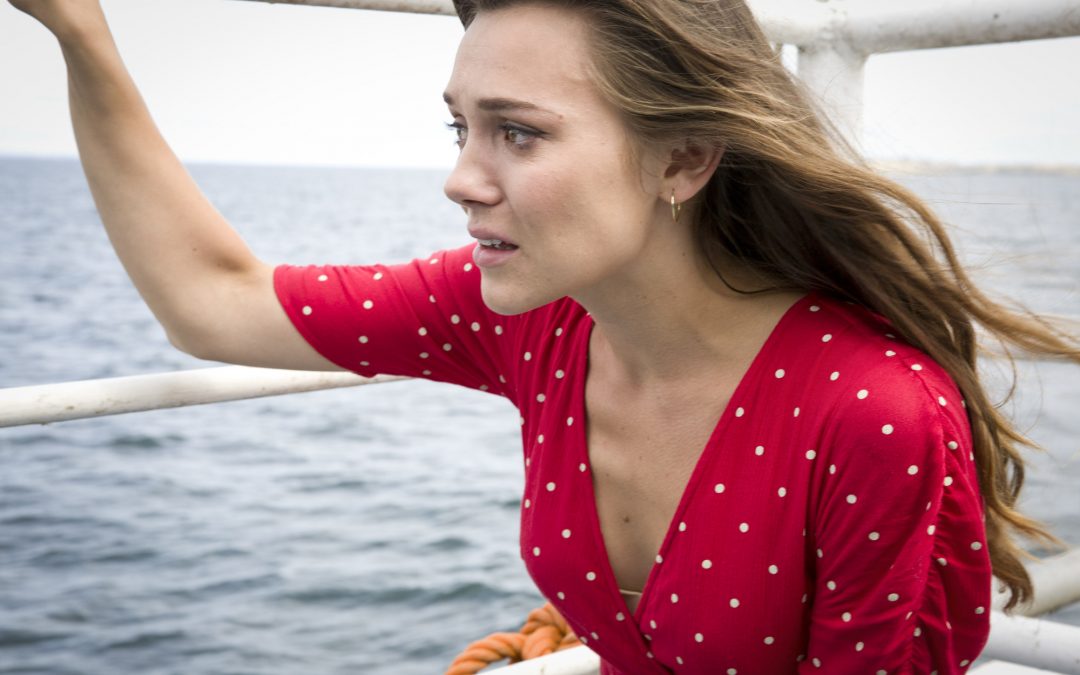This review contains spoilers.
After the first episode of Clique’s second series aired and it became clear that rape culture was going to be the issue it explored, it made sense to be worried. Television doesn’t have a great track record in this area and, with the real world grappling with the same problems in a more charged way that ever before, even with its heart in the right place, Clique had a battle to fight.
It wasn’t perfect, but it was pretty darn good all considered. Rayna’s character, as explicitly stated in her big monologue, was both a victim and a bad guy in the series. It’s a testament to the writing that the show tackled both the devastating impact of false reports and the very real damage of sexual assault on young women in the same breath, and kept Rayna as a very human figure throughout.
Individual people committed heinous acts throughout the six episodes, but Twitcher and the culture it promotes were clearly the real problems in all of it. Even without Ben’s manipulation of Rayna for his own gain, he has collected a group of men who, together, form a ticking time bomb of misogyny and violence. Marching against women who report rape and ‘ruin lives’ is one thing, but it’s the more subtle things that do the most damage.
We can’t forget that Ben’s words directly led to Fraser’s suicide, and that Calum was welcomed with open arms in spite of his abuse of his mother and brother. It’s throwaway, but Aubrey’s realisation that his identity as a black gay man was just a propaganda tool for Twitcher is also an important aside.
Calum is a good villain, even if ‘insanity’ isn’t the most compelling motive in an otherwise fairly emotionally complex narrative. It’s not clear why he does the things he does, and the mystery’s resolution exonerates Jack a little too much. The assault wasn’t his fault, the stabbing was staged, and and the blackouts were just that – blackouts. He didn’t kill Louise despite seeming to have confessed, and his and Agnes’ strained relationship was engineered by Calum.
Jack is a non-character by design. If he doesn’t know who he is or what he’s done, then the audience aren’t given any insight into him either. That’s why I’m glad he wasn’t used as a tool for Holly’s happy ending. He’s a pawn in the long-game of the fight for Holly’s soul, and nothing more.
Speaking of, Rachel really didn’t end up mattering much. The closing montage shows that she may have murdered Ben on Holly’s behalf (or the behalf of women generally), but she was conveniently absent from the final confrontation. The only significant change for Rachel across series two is that she’s now out of the hospital and on the run, and her relationship with Holly has thawed somewhat.
But I stand by my assertion that the series wouldn’t have changed had Rachel been a figment of Holly’s imagination throughout.
There’s so much going on in this episode that the ending can’t help feeling rushed. Holly might have embraced her dark side, but she’s also leaned into an unconventional family dynamic comprising herself, her father and Rayna. There was still no mention of Georgia, which was a choice in this second series that was only slightly distracting, and I’m sure unavoidable.
But series two on the whole was still a massive step up from an already solid first run, combining the most interesting players with a darker and more relevant subject matter. Besides Jack, no one came out of this clean, and Holly had to finally grapple with her past and present in new and interesting ways.
If there’s no third series, we leave her in a good place, but let’s hope for more anyway. Clique is a show we need right now, with daring and solid characterisation to spare and an always-sympathetic analysis of current events from all sides. It’s rare, and deserves our time.
Read Caroline’s review of the previous episode here.

